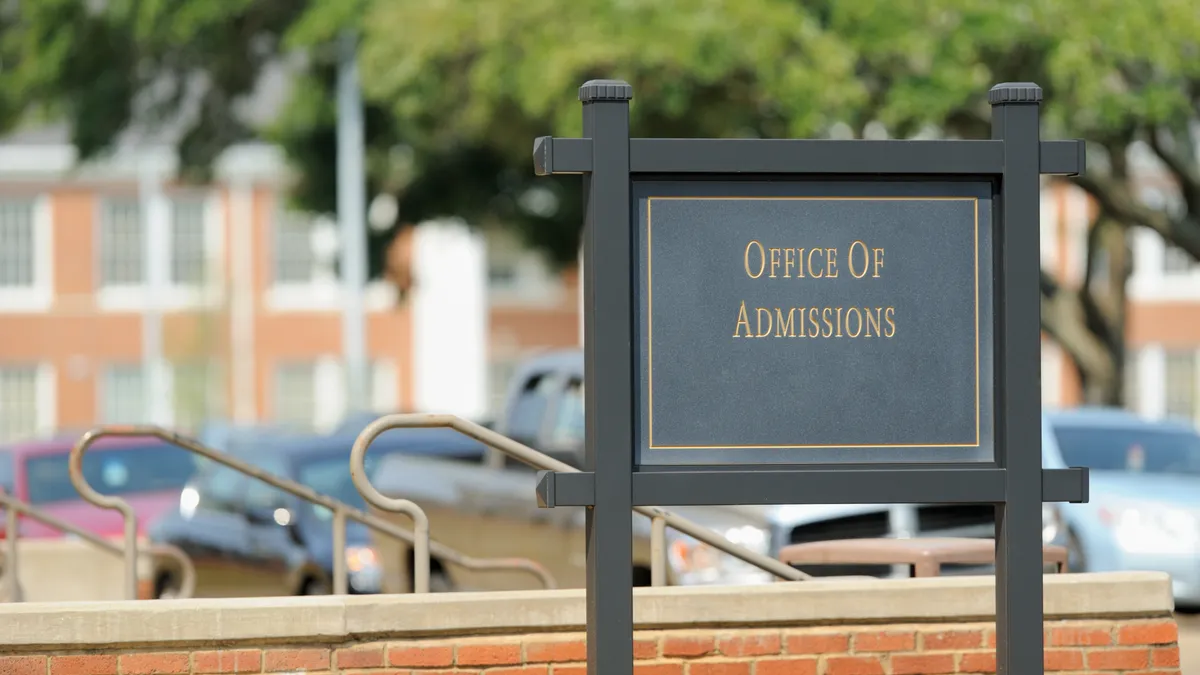John B. King Jr. takes over as acting secretary of education Jan. 1, assuming the position with barely more than one year left in President Barack Obama’s second term.
King will skip a potentially contentious nomination process and become “acting” secretary of education in just a few weeks. The Obama administration’s decision to circumvent congressional approval should make King’s transition from acting deputy secretary of education to acting secretary a relatively smooth one. Whether he will take an activist role in the short-term position remains to be seen, but education experts and advocates, as well as administrators, are clear on what his challenges will be.
In the Higher Education realm:
With the official end of No Child Left Behind and a rewrite of the Elementary and Secondary Education Act approved by both the House and Senate, legislators are sure to turn their sights to the Higher Education Act, which is also overdue for reauthorization. This reauthorization along with several other industry trends will give King a chance to make his voice heard.
Accreditation: How should higher education institutions be held accountable for their services to students? Some lawmakers are arguing for an alternative credentialing body to expand access to federal student aid among nontraditional providers. Outgoing Secretary Arne Duncan has called accreditors the “watchdogs that don’t bite.” King will have to provide some leadership on the path forward for the industry.
Regulation: Costs are going up in higher ed, and national concerns over student debt are prompting debates over the source of the increases and what can be done about them. John Ebersole, president of Excelsior College, says one of King’s challenges is to be open to a new regulatory approach, as well as cognizant about whether regulation leads to higher costs for students and, therefore, less access.
Student outcomes: The Obama administration has contributed to a shift in the way people assess the value of a college degree, highlighting economic returns like job status and salary level. A documented skills gap in the country’s labor force indicates there should be some focus on connecting graduates to waiting jobs, and David Stoloff, a professor of Education at Eastern Connecticut State University, says King will have to contend with the public’s demand for these pathways.
Financial aid: Hollins University President Nancy Gray is one of many who see a need for an overhaul of the financial aid process. Congress let the Perkins Loan program expire this year ahead of an expected reorganization of aid programs through the Higher Education Act. Gray expects King will have to weigh in on a redesigned Free Application for Federal Student Aid, as well.
Sexual assault: The Education Department set the tone for the responsibilities of colleges and universities when it comes to allegations of sexual assault with a Dear Colleagues letter in 2011. The avalanche of complaints to the Office of Civil Rights has prompted many to wonder whether educational institutions can ever be equipped to handle such allegations properly and a handful of recently successful lawsuits by accused students about their own rights may turn up the pressure on the the federal government to release new guidance or clarify regulation.
Elementary and Secondary Education:
In K-12, implementation of the Common Core State Standards and the assessments that measure student mastery continue to remain at the forefront of education policy debates, along with conflicting desires from the public, and the best route to expanded early childhood education. Notably, he'll assume the role at a time when the nation's biggest K-12 law, the newly signed Every Student Succeeds Act, promises to limit the influence of his position, returning a large amount of educational decision-making power to states.
Common Core: While the federal government did not develop the Common Core State Standards, it had a hand in their widespread adoption and has taken much of the criticism over the botched rollout of the standards themselves and their accompanying assessments. Eric Tucker, executive director of the Brooklyn Laboratory Charter School, sees the standards as an opportunity to “challenge mediocrity” and expects one of King’s greatest challenges will be to continue to champion “purposeful and strategic transitions” to the higher standards in the face of fierce opposition. Here, the ESSA's limiting of the secretary's power, however, may present the biggest challenges.
Conflicting desires: David Stoloff, a professor of education at Eastern Connecticut State University, points to the conflicting public desires among people who want to increase the amount of technology in schools and support alternative program models but don’t want to back the taxes to support them. King will surely join his predecessors in advocating for more money to support education initiatives across the country, though he won’t have long to make his case.
Expanding preschool: The Obama administration has championed the importance of early childhood education, overseeing plans for a major expansion, especially in the last year. Obama’s long-term goal is to give every child in the country access to high-quality early childhood programming. King has said he will embrace that ambitious goal as secretary but with just one year in his position, the scope of progress is likely to be limited. Notably, the Every Student Succeeds Act will provide a boost in those pre-K expansion efforts.
Would you like to see more education news like this in your inbox on a daily basis? Subscribe to our Education Dive email newsletter! You may also want to read Education Dive's look at how Latino students are increasingly important to higher ed's success.




 Dive Awards
Dive Awards









